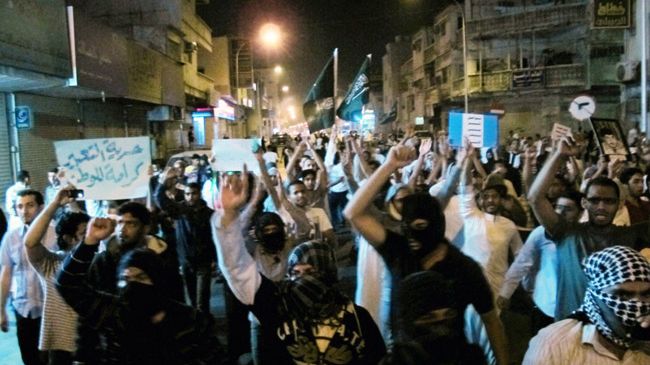S Arabia gives activist 13 yrs in jail: HRW researcher

 An activist in Saudi Arabia has been sentenced to 13 years in jail and a 15-year travel ban, according to a Human Rights Watch (HRW) researcher.
An activist in Saudi Arabia has been sentenced to 13 years in jail and a 15-year travel ban, according to a Human Rights Watch (HRW) researcher.
Adam Coogle said a judge convicted Adel al-Labbad in the Eastern Province of Saudi Arabia on Thursday, The Associated Press reported.
Labbad faced a total of five charges, including disobedience to Saudi King Abdullah and disturbing public order.
Media across the kingdom has not yet reported on the sentence.
Meanwhile, the Saudi public prosecutor demanded the death penalty for a 20-year-old man accused of participating in anti-regime protests.
On Wednesday, HRW censured Riyadh’s crackdown on human rights activists in the kingdom.
“Civil society and human rights activists in Saudi Arabia are struggling for greater popular political participation, judicial reform, and an end to discrimination against women and minorities. Saudi authorities have responded by cracking down on rights defenders, quashing calls for change, and preventing the development of an opposition movement,” the New York-based group said in a report.
Human rights groups say there are over 40,000 political prisoners in Saudi Arabia, many of them being held without trial or charges.
Since February 2011, demonstrators have held anti-regime protest rallies on an almost regular basis in Saudi Arabia, mainly in Qatif and the town of Awamiyah in the Eastern Province, primarily calling for the release of all political prisoners, freedom of expression and assembly, and an end to widespread discrimination.







